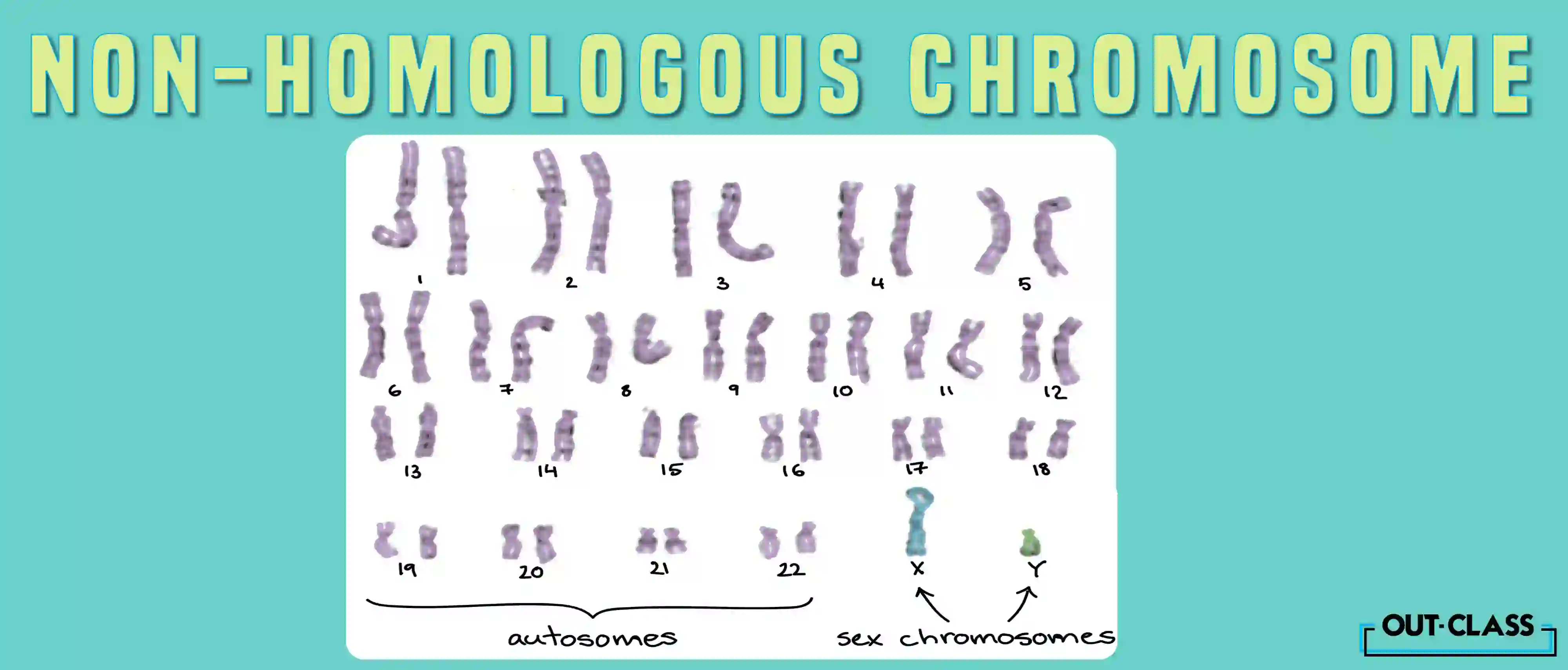Non-homologous chromosomes are crucial for understanding genetics and inheritance in O/A Level and IGCSE Biology. If you are having a difficult time understanding their concept, you’re in the right place. Our summary guide below will get you right up to speed on the fundamentals to help you ace your exams!
Exploring Non Homologous Chromosomes
What is Non-Homologous Chromosomes?
They are chromosomes that do not form a “pair”. Each non-homologous chromosome houses a unique set of genes at different positions, differing from its counterpart in the pair.
Function of Non-Homologous Chromosomes
These chromosomes have a key role in creating genetic diversity in living organisms. They introduce variation through recombination during meiosis.
Example of Non Homologous Chromosomes
In humans, the 22 pairs of autosomal (non-sex) chromosomes are homologous. However, the XY sex chromosomes pair of a male are non homologous, differing in structure and the genes that they carry.
Spotting Non-Homologous Chromosomes
If you are asked to identify the non homologous chromosomes on this diagram, look for the pair that is structurally different, or the pair that doesn’t carry the same genes at the same spots.
FAQs
Q. What is the difference between Homologous vs Non-Homologous Chromosomes?
Homologous chromosomes are similar in gene sequence and structure, pairing during meiosis, while non-homologous chromosomes carry different genes and do not pair.
Related: Homologous vs Non-homologous Chromosomes
Q. Can Non Homologous Chromosomes 'crossover'?
While crossover is rare, it's possible between non-homologous regions, potentially leading to genetic disorders.
Q. What is Non-Homologous and Homologous?
Non-homologous and homologous are terms used to describe chromosome pairs in genetics.
Q. How many Non-Homologous Chromosomes are there?
It depends. Humans have 22 pairs of homologous chromosomes and one pair of sex chromosomes. Females have an XX sex pair which is homologous whereas males have an XY sex pair, which is non-homologous.
Q. What is the difference between Homologous and Heterologous Chromosomes?
Heterologous is another name for non-homologous chromosomes which are discussed above.



